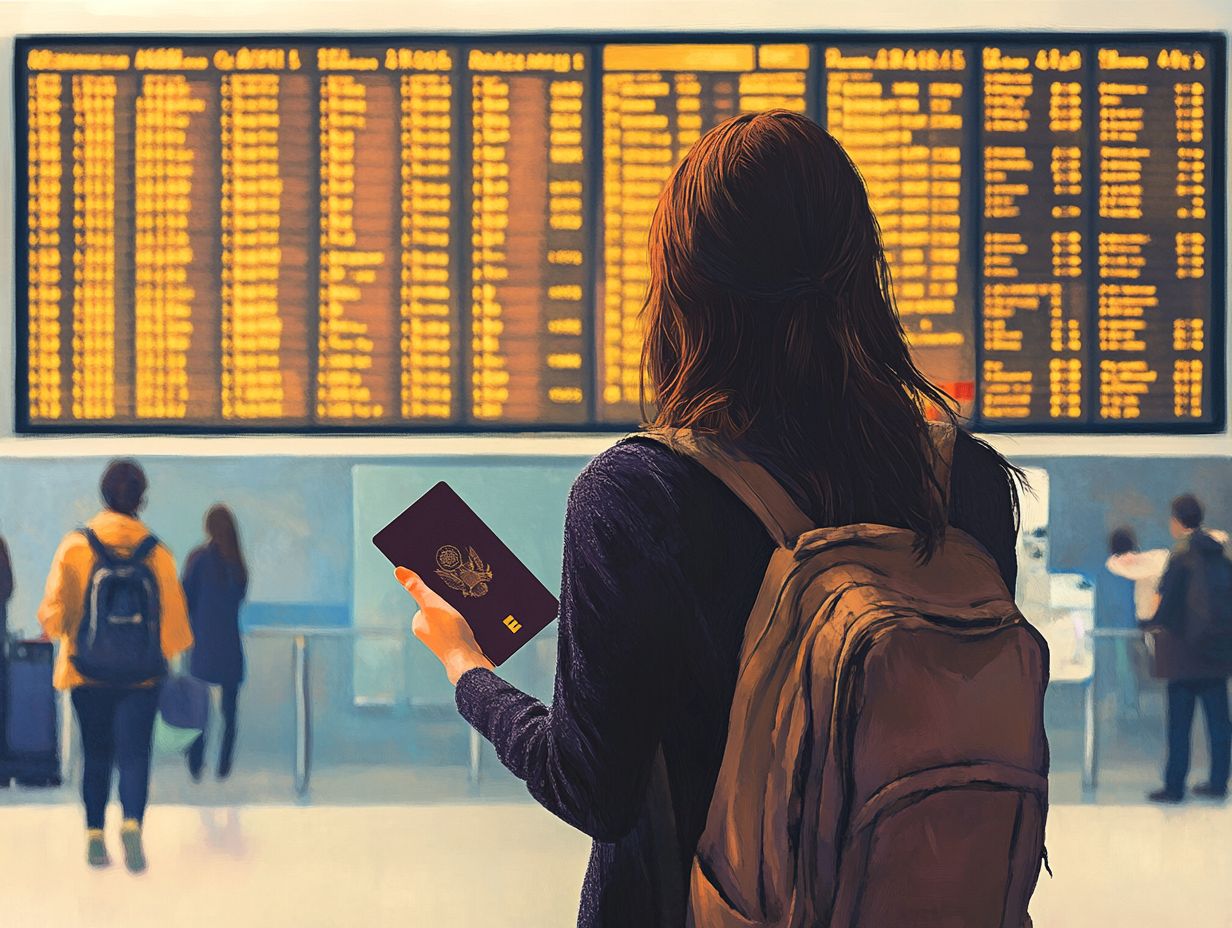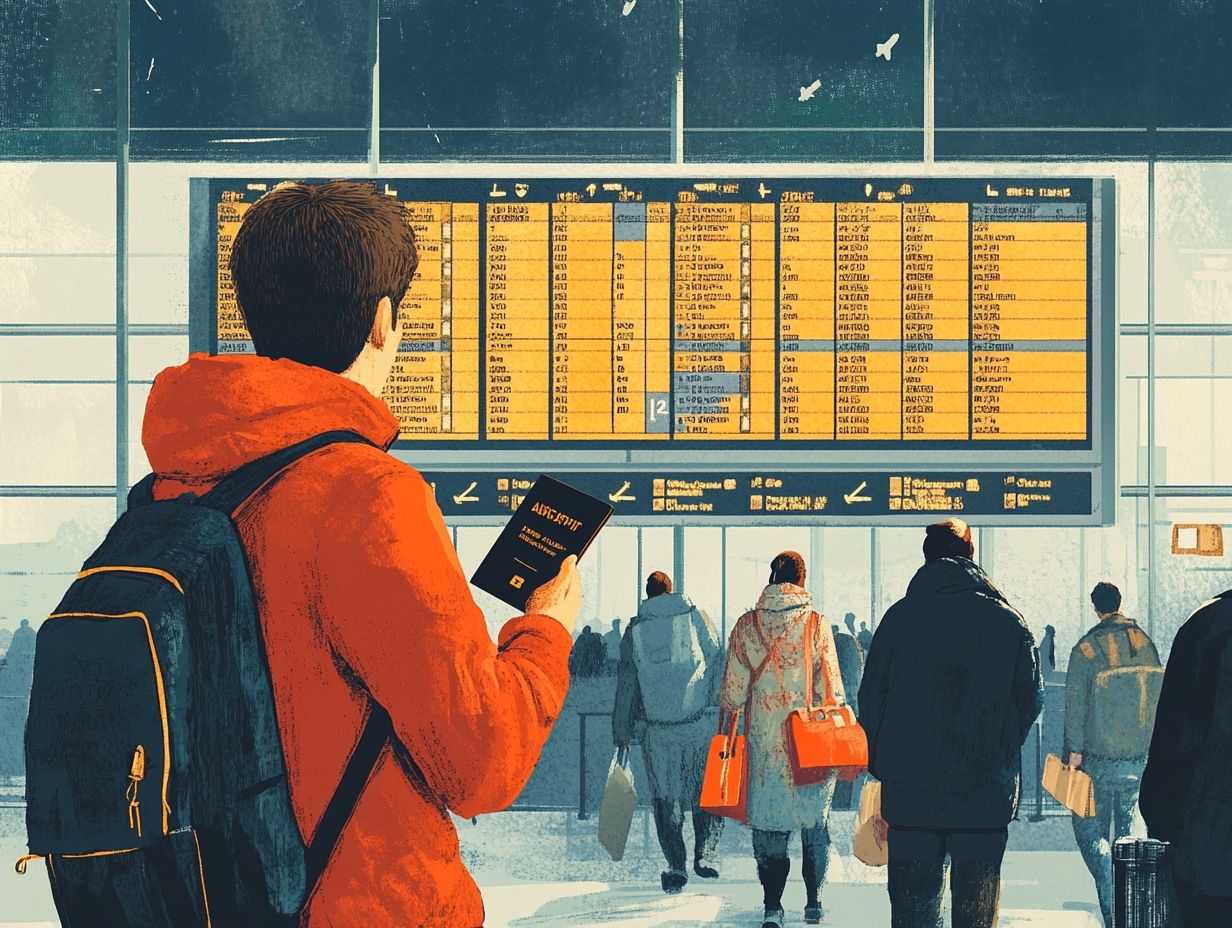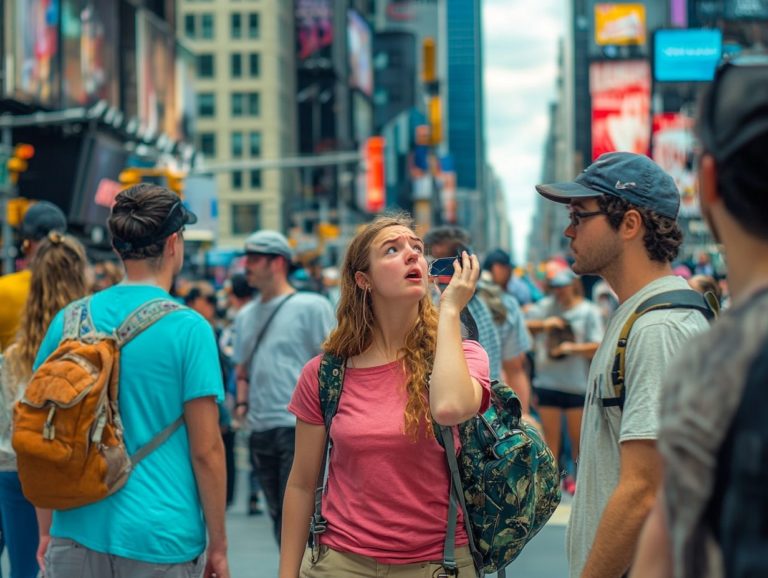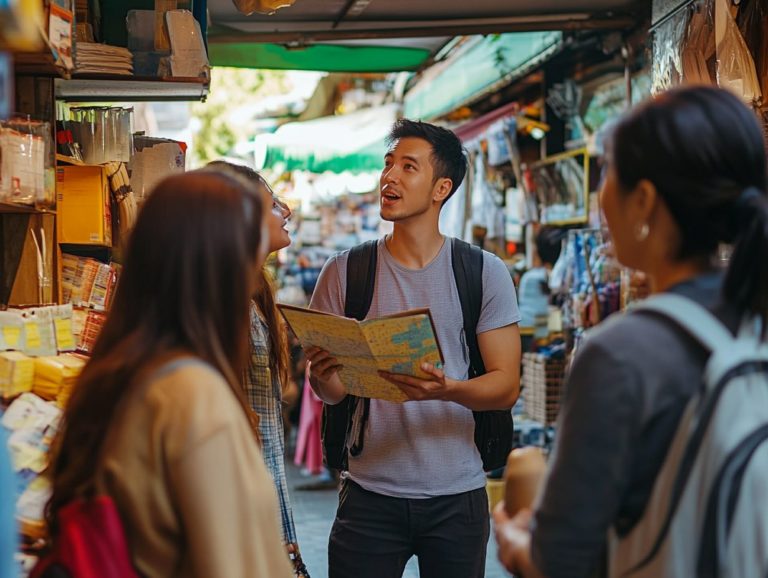What to Know About Travel Restrictions?
Travel restrictions can significantly impact your travel plans. They often leave you feeling uncertain and anxious.
This article delves into what travel restrictions are, exploring various types such as border closures and quarantines and the reasons behind them, including public health concerns and natural disasters.
Staying informed is crucial. This article provides guidance on finding the latest updates. If you find yourself affected by these restrictions, we provide practical steps for safe travel and options for rescheduling your plans.
Whether you re a frequent flyer or an occasional traveler, grasping these elements will empower you to navigate today s travel landscape with confidence.
Contents
- Key Takeaways:
- Understanding Travel Restrictions
- Types of Travel Restrictions
- Reasons for Travel Restrictions
- How to Stay Informed About Travel Restrictions
- What to Do if You Are Affected by Travel Restrictions
- Frequently Asked Questions
- Key Insights on Travel Restrictions You Need to Know!
- What are some common reasons for travel restrictions?
- How can I find out about current travel restrictions?
- Do travel restrictions only apply to international travel?
- What should I do if I have already booked a trip to a destination with travel restrictions?
- How long do travel restrictions usually last?
Key Takeaways:

- Stay informed about travel restrictions by regularly checking reliable sources for updated information.
- Understand the reasons for travel restrictions, including public health concerns and natural disasters.
- If affected by travel restrictions, take steps for safe travel and consider rescheduling or canceling travel plans.
Understanding Travel Restrictions
Understanding travel restrictions is vital for you as a U.S. citizen planning international trips, particularly during heightened health concerns like the COVID-19 pandemic. For comprehensive information, here’s what to know about travel warnings, as various government organizations implement these restrictions to regulate entry requirements and safeguard the safety and security of travelers.
Staying informed about the latest travel information is essential, as these regulations can shift rapidly in response to public health conditions and governmental guidelines.
Types of Travel Restrictions
Travel restrictions encompass various measures designed to protect public health and manage border status effectively. These may include border closures, quarantine requirements, and tailored travel advisories, each serving a specific purpose in ensuring safety and order.
Border Closures and Quarantines
Border closures and quarantine requirements play a crucial role in travel restrictions, aimed at curbing the spread of infectious diseases and safeguarding the well-being of both travelers and citizens in the destination country.
These measures are typically instituted by government authorities who rely on health data, including infection rates and hospitalization statistics, to make informed decisions. When determining the necessity for quarantine, factors such as your vaccination status, recent travel history, and local contagion levels are carefully considered.
Stay vigilant about potential changes in regulations, as they can shift rapidly in response to the evolving public health landscape. Before your trip, check trustworthy websites for the latest updates on border statuses and travel mandates. This way, you’ll be well-informed and prepared for any necessary compliance or adjustments to your travel plans.
Travel Advisories and Warnings
Travel advisories and warnings issued by government organizations are invaluable resources for you as a U.S. citizen. They provide timely travel alerts and vital information that can significantly impact your travel plans.
These advisories play a crucial role in keeping you informed about potential safety concerns, such as civil unrest or natural disasters. They also shed light on health risks, including disease outbreaks or the standards of local medical facilities. You ll find important details about entry requirements, curfews, and local laws, which can differ greatly from one destination to another.
Therefore, before you set off on your next adventure, it’s essential to check official websites. They offer the most reliable and up-to-date information, enabling you to make informed decisions and better protect your experiences abroad.
Reasons for Travel Restrictions

Travel restrictions emerge from many factors, predominantly driven by public health concerns, natural disasters, and political unrest. Each of these situations demands tailored measures to safeguard U.S. citizens and ensure their well-being while abroad.
Public Health Concerns
Public health concerns, especially after the COVID-19 pandemic, have led to new travel restrictions. This includes the need for COVID-19 testing and proof of vaccination before entering many countries.
As a traveler, navigating this complex landscape can be overwhelming. Some places require multiple tests or advance verification of your vaccination documents.
You ll need to consider extra time and costs, prompting a more cautious approach when planning your travel itinerary.
This heightened focus on safety has changed what you expect from a trip. It has also sparked renewed interest in domestic travel options, where restrictions may be more relaxed.
Natural Disasters and Political Unrest
Natural disasters and political unrest are key factors driving travel restrictions. They directly impact the safety and well-being of U.S. citizens abroad.
In recent years, hurricanes, earthquakes, and civil unrest have prompted authorities to issue travel advisories or outright bans on certain destinations.
For instance, the devastation from Hurricane Maria in Puerto Rico led to widespread evacuations and significant travel concerns, greatly affecting tourism and local economies.
Similarly, ongoing conflicts in regions like Syria and Afghanistan have caused humanitarian crises, marking them as high-risk destinations.
These situations threaten travelers security and strain local resources, complicating the decision to visit or stay in affected areas.
How to Stay Informed About Travel Restrictions
Staying informed about travel restrictions is essential for safe travel planning. As a U.S. citizen, access accurate and timely information through official government sites and secure websites.
This ensures you have the necessary details to navigate your journey smoothly and confidently.
Sources for Updated Information
Reliable sources for updated travel restriction information include the official government website and trusted platforms offering real-time travel data for U.S. citizens.
Utilizing travel advisory services and reputable news outlets specializing in tourism benefits you greatly. These platforms often have dedicated sections for travel alerts, consolidating essential updates in one convenient location.
Consider following social media feeds from recognized travel organizations or influencers for timely insights. Relying on multiple sources ensures accuracy and comprehensiveness.
Engaging with local travel forums can also reveal firsthand experiences and tips, adding another layer of reliability to your information gathering.
What to Do if You Are Affected by Travel Restrictions

If you are impacted by travel restrictions as a U.S. citizen, you must take specific steps to ensure safe travel, make informed decisions, and manage any potential medical emergencies.
Steps to Take for Safe Travel
To keep your travel safe amidst restrictions, you should assess your travel status, stay informed, and adhere to health protocols set by government organizations.
Regularly check updates from authoritative sources like the Centers for Disease Control and Prevention (CDC) and the U.S. State Department. Understanding local guidelines and entry requirements is crucial, as regulations can vary significantly from one destination to another.
It s wise to have contingency plans, including comprehensive travel insurance that covers health emergencies and potential quarantine measures.
By proactively preparing and remaining adaptable, you can navigate modern travel complexities while prioritizing your safety and well-being.
Options for Rescheduling or Canceling Travel Plans
Considering travel restrictions, you have various options for rescheduling or canceling your travel plans. This flexibility will help you make international travel easier.
Many airlines and hotels have adjusted their policies to provide greater leniency during these uncertain times. To get started, review your booking details carefully. Pay attention to any cancellation or change fees outlined in the terms and conditions.
You can still adjust your plans! Reach out to airlines directly, as they may offer additional options that aren’t advertised online. When contacting accommodations, being polite yet assertive can often lead to better outcomes.
Stay informed about local travel restrictions. They can affect your eligibility for refunds or changes. Following these steps can significantly lighten the load of altering your anticipated travel plans.
Frequently Asked Questions
Here are some common questions about travel restrictions to help you plan.
Key Insights on Travel Restrictions You Need to Know!
Travel restrictions refer to limitations or regulations set by governments or authorities that restrict or control travel to and from a specific area or country, usually due to safety or health concerns.
What are some common reasons for travel restrictions?

Travel restrictions can be enforced for various reasons, including political instability, natural disasters, disease outbreaks, or security threats in a particular destination.
How can I find out about current travel restrictions?
The best way to stay informed is to regularly check the official government websites of the country you are planning to visit. You can also consult with a travel agent or contact the embassy or consulate of your destination for up-to-date information.
Do travel restrictions only apply to international travel?
No, travel restrictions can also apply to domestic travel within a country. For example, some countries may have restrictions on travel between regions or provinces due to COVID-19.
What should I do if I have already booked a trip to a destination with travel restrictions?
If you’ve already booked a trip to a destination with travel restrictions, check the terms and conditions of your booking. You may be eligible for a refund or credit, or you may have the option to reschedule your trip for a later date.
How long do travel restrictions usually last?
The duration of travel restrictions can vary depending on the reason for the restriction. Some may be lifted after a few weeks, while others may last for several months or even longer. It is crucial to stay updated on the latest developments and changes in travel restrictions for your destination.






